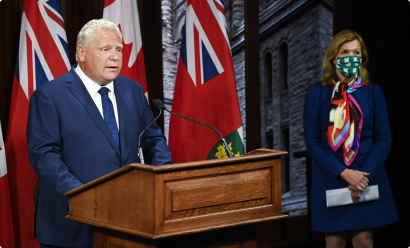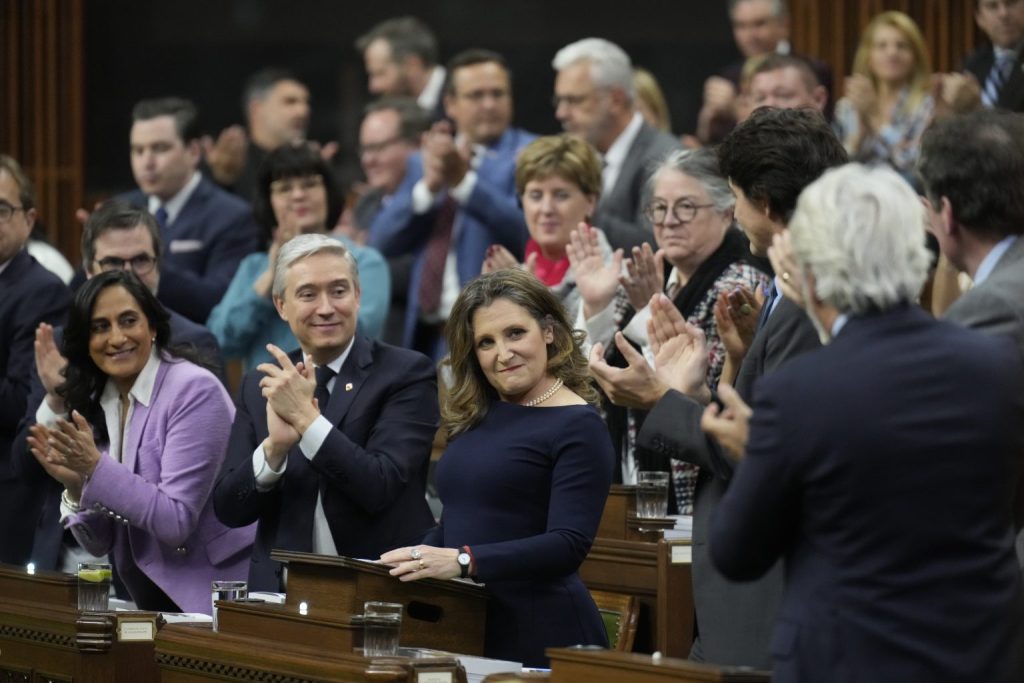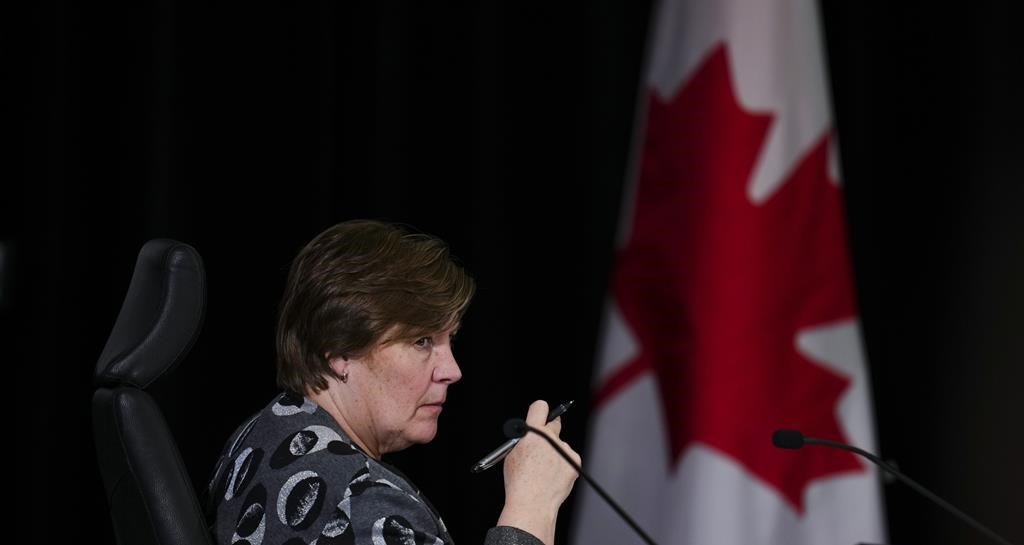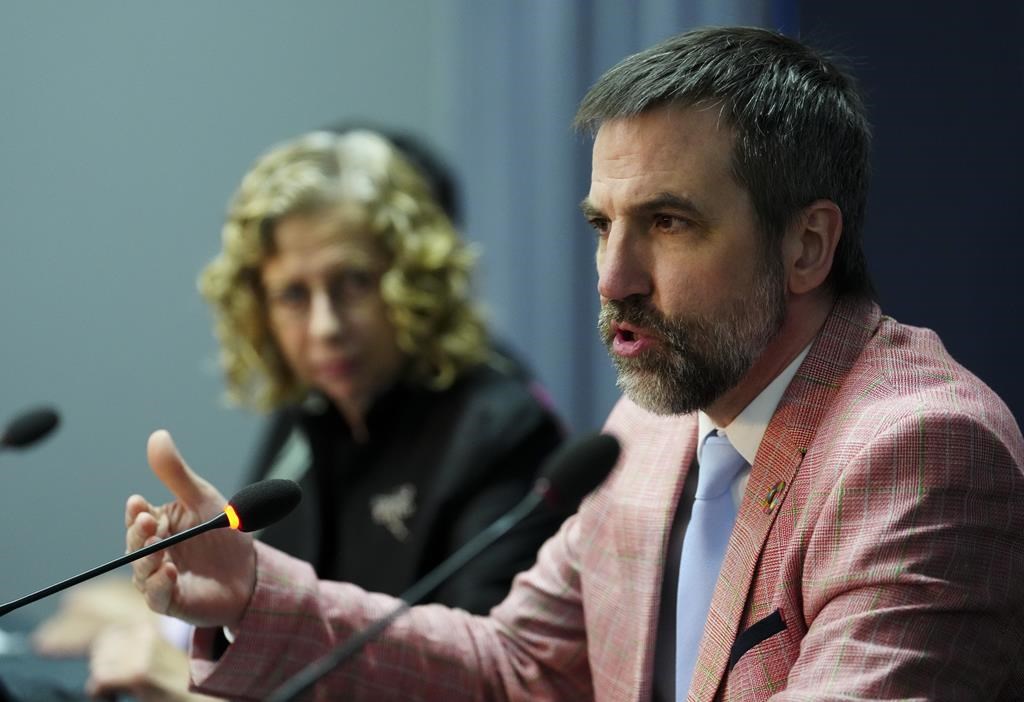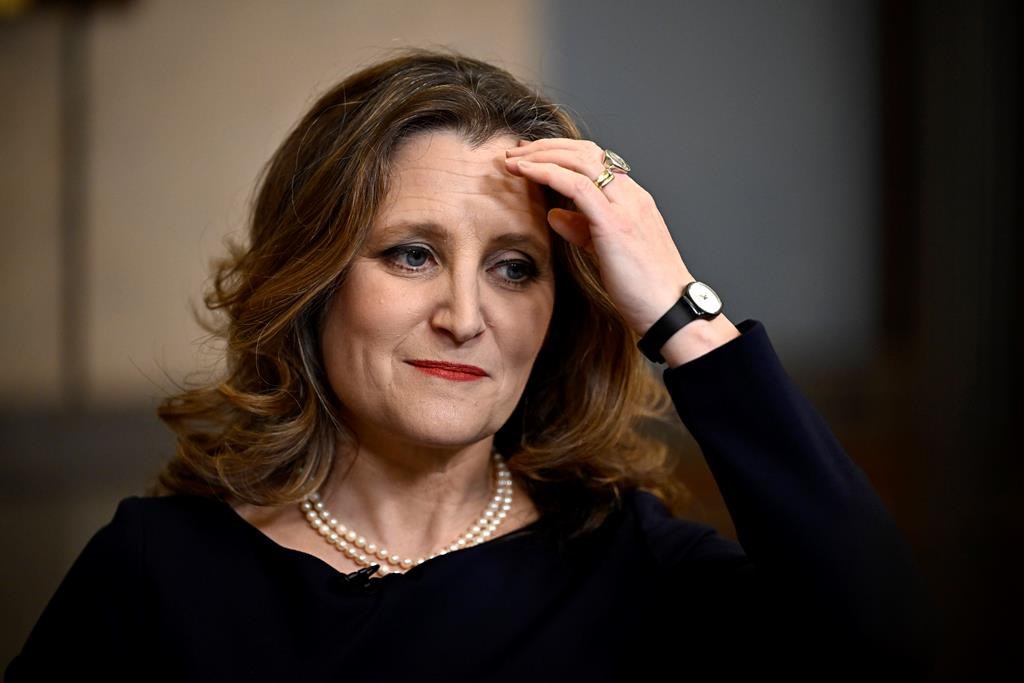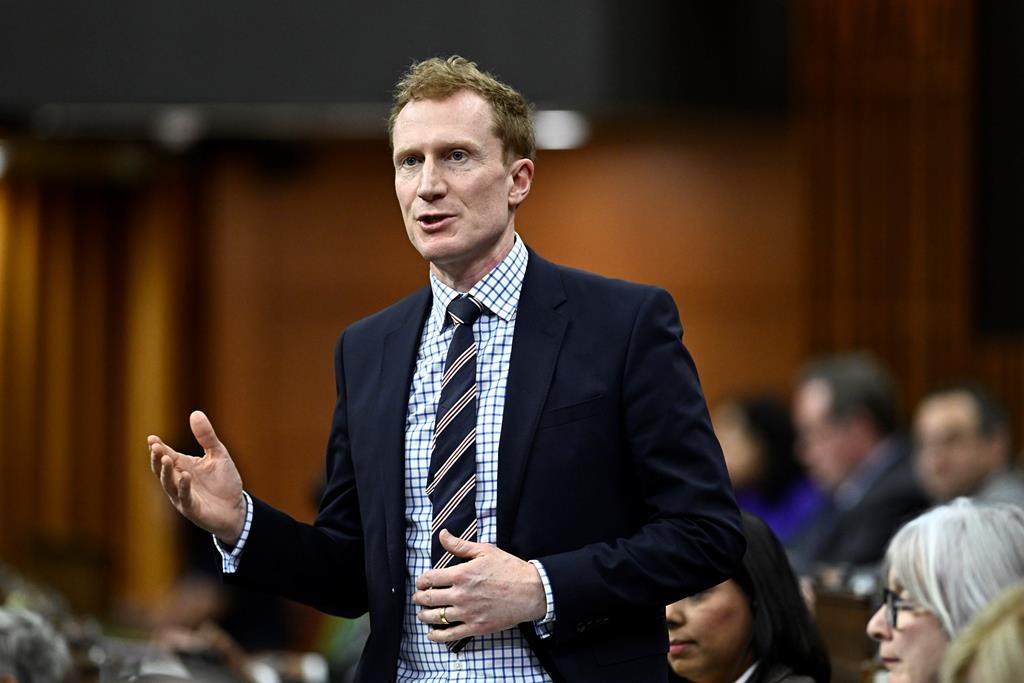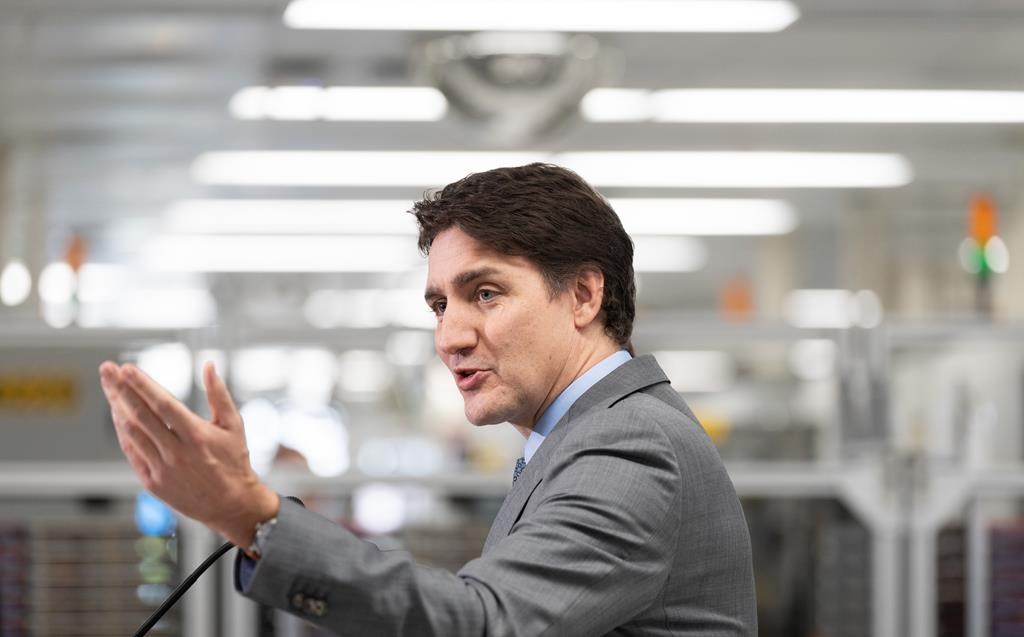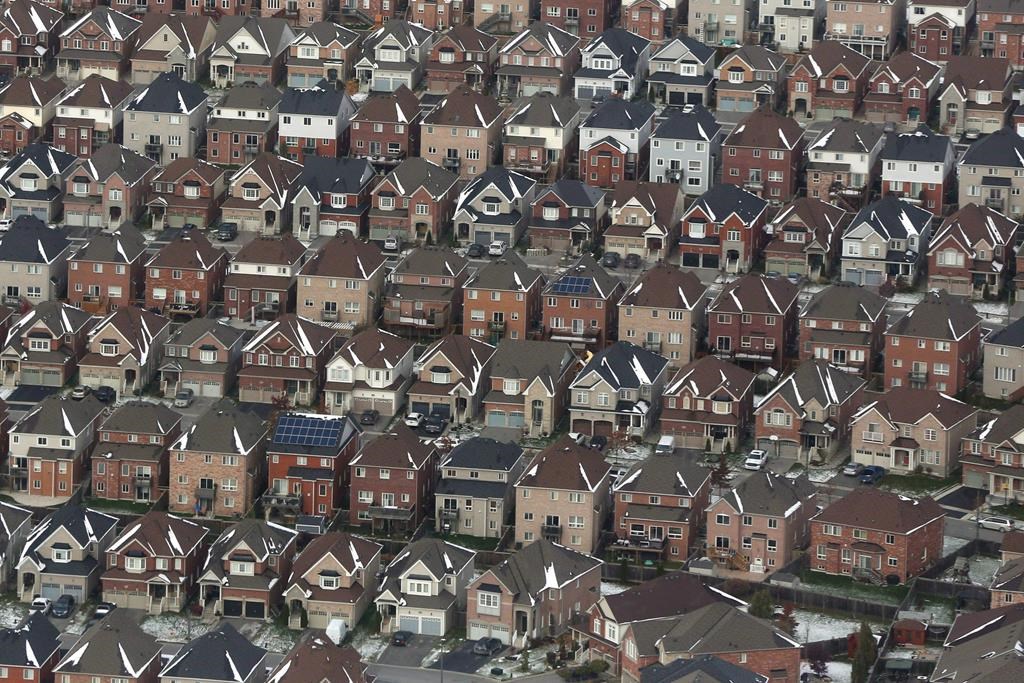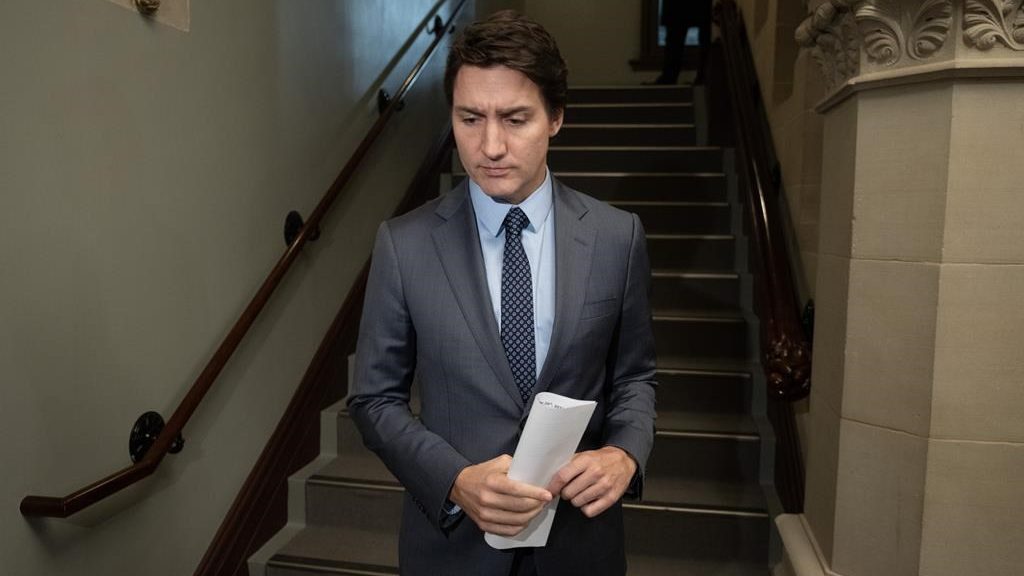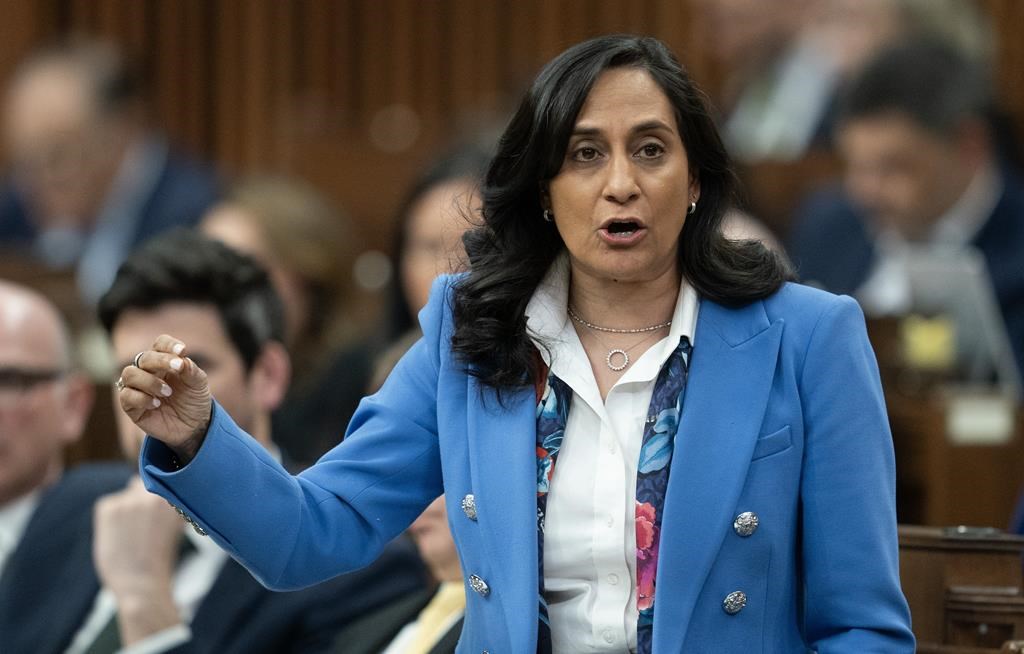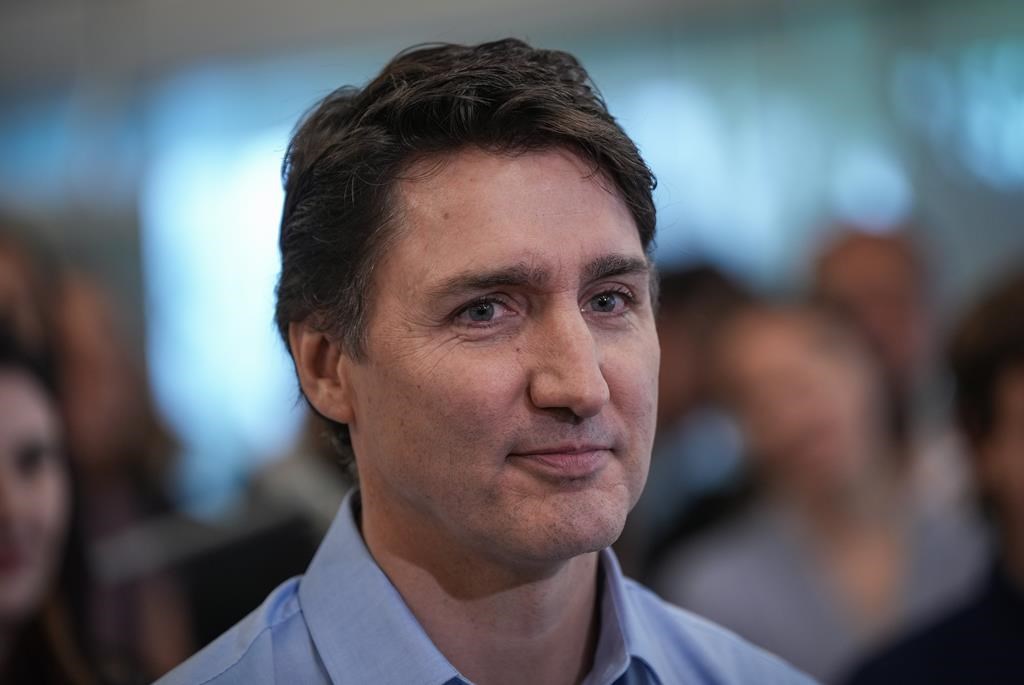With billions of dollars in new spending announced today in the 2024 federal budget, Ottawa is attempting to try and tackle the housing affordability crisis, promising “fairness for every generation” with a new capital gains tax on the wealthy and big corporations.
Finance Minister Chrystia Freeland vowed to not grow the deficit as she rolled out several new programs leading up to today, promising not to raise taxes on the middle class.
The budget she tabled sets the deficit projection at $39.8 billion for the 2024 to 2025 period, with close to $36 billion in new spending over the next five years, targeted mostly at addressing Canada’s housing crisis.
“If we want our kids to have the kind of lives we have had, then we have to get more homes built faster,” Freeland said. “We have to have a different attitude towards it and do it in different ways. That is happening.”
Ottawa’s plans for addressing the housing crisis include building nearly 3.9 million homes by 2031, a $15 billion top-up for the Apartment Construction Loan Program, and introducing a Renters’ Bill of Rights for tenants. Among the measures not previously announced, Ottawa is committing to building homes on Canada Post and National Defence properties, as well as consultations for a new tax on vacant lands that are zoned for housing.
“Affordability is top of mind, and this is a go big or go home budget on the housing file,” David Macdonald, with the Canadian Centre for Policy Alternatives, said, even as he pointed out the measure the government put forward will only start to make an impact in two to three years.
The budget also stresses Canada’s needs to align immigration with the housing capacity, as the government looks to stabilize both permanent and temporary immigration levels. This comes after Ottawa’s announcement to cap international student visas and planning to welcome 600,000 fewer temporary residents in Canada in the next three years.
Among the topic of immigration, Budget 2024 also included $50 million over the next two years to streamline the recognition of foreign credentials, particularly for workers in the construction and health care sectors, with $77 million over four years to specifically support the integration of internationally educated health care professionals.
Ottawa is also proposing measures to simplify and streamline the claim process for asylum seekers. With a $1.1 billion investment over three years for the Interim Housing Assistance Program, a program intended to support provinces and municipalities offering transitional housing support to asylum claimants, and over $270 million over five years for legal aid services for refugees.
In light of recent political events around the world, Ottawa’s concerns also has them investing more than $273 million in the next six years to combat hate, including $18 million to create a hub to collect hate-crime related data and provide training, and $7.3 million each to combat antisemitism and Islamophobia.
Other big ticket items Freeland and Prime Minister Justin Trudeau announced in the last two weeks are a $1 billion national school food program, a $1 billion expansion of the child care program, $1.5 billion over five years for the launch of the national Pharmacare plan, and $8.1 billion in defence spending.
These are all investments Ottawa intends to pay partly by increasing the inclusion rate on capital gains, or the profit made when assets such as stocks or real estate are sold, from one-half to two-thirds, which the government expects will bring in over $6 billion.
The tax would come into effect on June 25, applying to individuals who make more than $250,000 in capital gains, 0.13 per cent of Canadians, and on all capital gains realized by corporations and trusts, which the government says will also affect about 12 per cent of Canadian businesses.
“Don’t worry, unless you are in the 0.13 percent of Canadians who have the most capital gains, you are not going to feel the impact of this at all,” economist Paul Kershaw said, adding the measure is “really modest by comparison with how much Old Age Security and medical care for an older population are increasing annually.”
When it comes to productivity and business investments, however, Robert Asselin who works with the Business Council of Canada warns taxing capital gains could have a negative impact.
“All the innovators, all the entrepreneurs out there will have more doubts about investing in the future, and that’s the main problem with taxation measures like these, introduced to pay for higher spending.”

